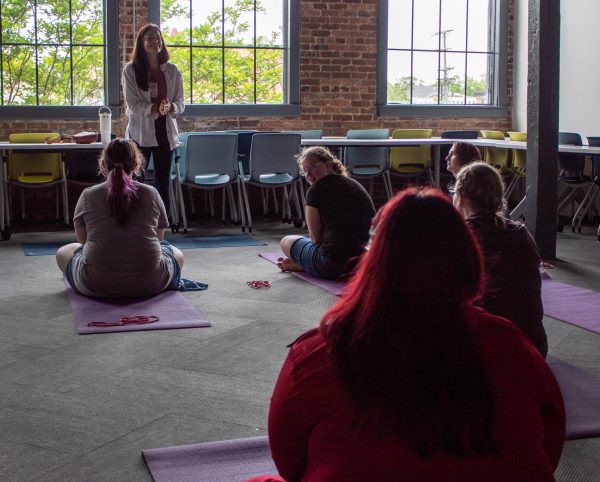New norm: college takes longer for average UNA student
October 13, 2011
It is no longer uncommon for students to finish their degree in four years, according to Dr. Thomas Calhoun, associate vice president for academic affairs at UNA.
Calhoun said even finishing in six years is not behind schedule, according to recent studies.
“Students are taking advantage of a multitude of opportunities they have in education,” Calhoun said.
He also said students in a multitude of majors are finishing in more than four years, and there are a number of different reasons for that. Calhoun states internships, co-op and study abroad are all reasons students may have to take longer in their education.
All these opportunities, however, contribute to the “experiential learning of the student,” Calhoun said. He spoke on how actions such as learning another language or studying in another country are only going to benefit the student, even if it does take a little more time.
“It may seem like a lot of time when you are young, but in the grand scheme of your life, a few years longer in school are not going to make a difference,” Calhoun said. “There is no question, though, that anything that gives students a global perspective is going to increase the job trajectory of that student.”
Calhoun said that being comfortable in a global setting can only benefit the student.
“The business of rushing through learning is misguided,” Calhoun said.
If the reason that a student feels rushed to complete in four years is a four-year scholarship, then he suggested asking for an extension or looking for alternative funds. He said if one does not ask, then the answer is definitely no.
“The music degree programs here at UNA vary from 128-136 semester hours for graduation,” said Dr. David M. McCullough, chair of the music and theatre department. “It is possible to accomplish that course work in four calendar years, although students frequently take longer for various reasons. The problem that many students encounter is with the degree programs that lead to teacher certification.”
Some students feel that there should still be an option to graduate in four years.
“I knew entering UNA that getting my degree would take longer than four years,” said Christian Clark, a UNA sophomore majoring in eusic education. “I was very displeased, though, that I didn’t realize there was no plan of which classes to take at what time during my years here.”
Dr. Greg Pitts, chair of the communications department, said that a communications degree at UNA is different from a music degree in terms of length.
“Communications is one of the easiest degrees to complete in four years,” he said.
Pitts said that the number of hours taken for each individual student might be a factor in how quickly they graduate.










